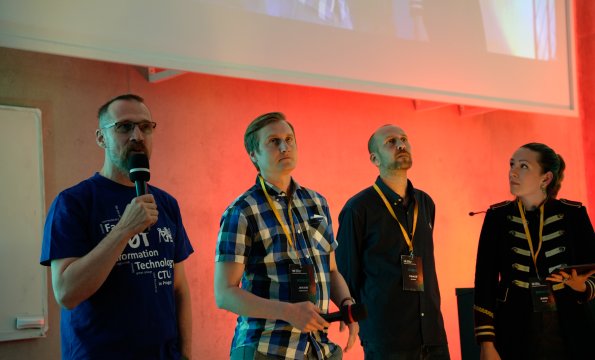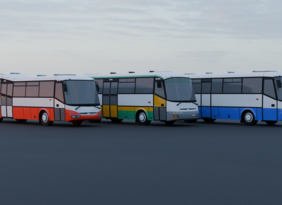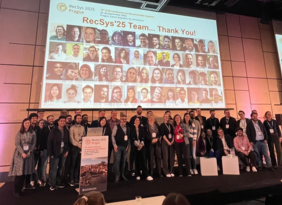The topic of the second year of the Technology in Society conference was heroism and the search for all its forms. What is heroism? And does heroism still have a place in our cloud world? Conference guests tackled questions of ethical hacking, blockchain in medicine, the ethics of autonomous vehicles, fame after death, cultural anthropology and leadership, the universe, and the role of heroism in creating false history. The conference was organized by the FIT CTU CCHAOS research group, led by Sara Polak.
The keynote speaker was Robin Dunbar with his lecture Role of Charisma in Leadership and Social Evolution. Robin Dunbar is a British anthropologist, evolutionary psychologist, and a specialist in primate behaviour. He currently heads the Social and Evolutionary Neuroscience Research Group in the Department of Experimental Psychology at the University of Oxford and is also a Visiting Professor at Aalto University. He is best known for formulating Dunbar’s number, expressing “the cognitive limit on the number of individuals with whom an individual can maintain stable relationships”.
Another conference highlight was the lecture Hacking as a Life Challenge by Pavol Lupták. Lupták is a Slovak IT expert and cryptoanarchist. He founded Nethemba, a company specializing in penetration testing and ethical hacking. Robin Kopecký’s talk on the Ethics of Autonomous Vehicles: Biology, Design & AI also attracted the participants’ interest. Lupták is a member of the Karel Čapek Center for Values in Science and Technology. In his talk, he addressed the issues facing software developers regarding the ethics of robotics, whether biology can help AI design, or whether it is right to let bystanders run over or sacrifice the car crew.
“I am very pleased with the interest in the conference’s second edition. Our goal was not so much to give answers but to ask many questions. We want people to enjoy educating themselves and not be afraid to have their own sober judgement on our society,” said Sara Polak, founder of the CCHAOS research group and digital archaeologist.
The programme consisted of 13 lectures, of which 4 were given by foreign guests, specially pre-recorded for this conference. Visitors came from all parts of the Czech Republic and abroad.





